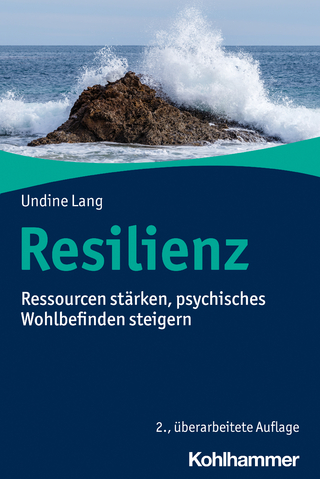
A House Next Door to Trauma
Jessica Kingsley Publishers (Verlag)
978-1-85302-867-0 (ISBN)
Judith Hassan has written a book which will strike readers on several levels. Dedicated to the memory of her parents - her mother was a refugee from Nazi Germany - it tells of the growing understanding derived from working with Holocaust-survivors. The Holocaust brings many lessons for all of us. Hassan's particular lesson is that it is possible to help those who carry deep within them old and desperate wounds. The lesson extends to suggesting that we could do the same for others whose wounds are fresher, perhaps more accessible. And she shows us how help might reasonably be given.'
- Jewish Chronicle
'This book describes what the author has learned, from working at the Shalvata Centre in London and setting up the Holocaust Survivors' Centre (HSC) next door, about the sort of services that can help those who survived the trauma of life in a Nazi concentration camp, or flight in the kindertransport, to realize their capacity for joy and contentment in the latter part of their lives.'
- Jewish Quarterly
'Some suffering, like certain grief leaves scars beyond those who experience it themselves. Their children carry it in their wounded souls like secrets that are too burdensome, or nightmares that are too disturbing to be faced. It is not a matter of physical or psychological wounds, for these are not even tangible. They often escape detection from traditional medicine or therapy, emanating from experiences transmitted from one generation to the next, each equally traumatised. But for those who can recognise these wounds, as Judith Hassan does in this book rich in understanding and compassion, the pain remains vivid.'
Elie Wiesel, Andrew W. Mellon Professor in the Humanities, Boston University
How do we respond to extreme suffering? Judith Hassan faced this challenge by listening to the survivors and learning from them as the experts on their own experiences. She discovered that conventional therapeutic responses did not seem to go far enough and she has spent twenty-five years developing innovative services for survivors of the Nazi Holocaust, as well as more recent refugees from Bosnia.
Judith Hassan has developed a model that addresses the trauma of individuals who faced starvation, torture and who witnessed the murder of close family members. Her book discusses the kinds of demands placed on those who work with these survivors and opens up issues for others in the field of war trauma to answer in their own particular and appropriate way.
Translating the language of liberation into practice, A House Next Door to Trauma points to a different way of becoming a neighbour to all those who suffer extreme war experiences. It is clear and hopeful in the positive potential it lends to therapeutic work in this area.
Judith Hassan, OBE, is Jewish Care's Special Advisor on Therapeutic Work with Survivors of War Trauma. She has a BSc (Hons) in Human Relations and is a qualified social worker. Judith has worked for Jewish Care for 42 years and considers they have always been the vital support for the services for survivors. For 36 years she pioneered and developed specialist services for survivors and refugees, both as a practitioner and as director of the services. She founded the Holocaust Survivors' Centre. She trains professionals and consults internationally on how to work with the effects of war trauma. Her work is widely published. She was awarded the National Care Awards Lifetime Achievement in Care in 2007, and an OBE for Services to Holocaust Survivors in 2008. Judith feels privileged to have been engaged in such rewarding work.
Acknowledgements. Preface: The `Other World' of the Survivor's Suffering. Part I: Facing the Dark Shadow. Introduction. 1. Opening the Door to the World of Extreme Trauma. 2. Personal Preparation to Confront the Dark Shadow. 3. The Complexity of Trauma. Part II: Learning from Survivors How to Respond to Atrocity. Introduction. 4. Working with the Effects of Extreme Trauma. 5. Rethinking our Therapeutic Approaches. Part III: A Therapeutic Model for Working with the Aftermath of Atrocity. Introduction. 6. Encounters with Survivors. 7. Translating Trauma into a Meaningful Therapeutic Language. 8. Building a Meaningful Therapeutic Service with those who have Undergone Severe Trauma. 9. Developing Services with Holocaust Survivors. Part IV: Integrating Trauma. Introduction. 10. Connecting Two Worlds. 11. Exploring the Usefulness of the Therapeutic Services in the Lives of Survivors. Part V: A House Next Door to Trauma - Particular and Universal Dimensions. Introduction. 12. Like a Mother with her Second Child: Work with Recent Refugees from War Trauma. 13. Developing Coordinated Therapeutic Responses to War Trauma. 14. Closing the Final Page. References. Index.
| Erscheint lt. Verlag | 15.2.2003 |
|---|---|
| Verlagsort | London |
| Sprache | englisch |
| Maße | 154 x 232 mm |
| Gewicht | 500 g |
| Themenwelt | Sachbuch/Ratgeber ► Gesundheit / Leben / Psychologie ► Lebenshilfe / Lebensführung |
| Sozialwissenschaften ► Politik / Verwaltung | |
| Sozialwissenschaften ► Soziologie | |
| ISBN-10 | 1-85302-867-3 / 1853028673 |
| ISBN-13 | 978-1-85302-867-0 / 9781853028670 |
| Zustand | Neuware |
| Haben Sie eine Frage zum Produkt? |
aus dem Bereich


